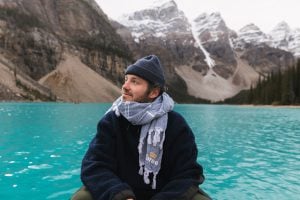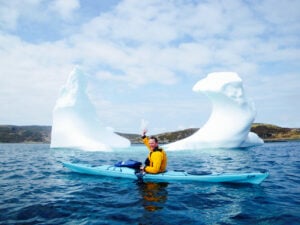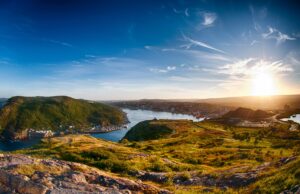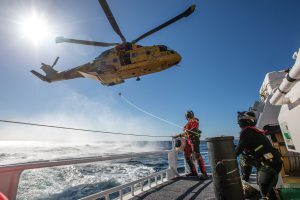Ripe garden tomatoes explode in my mouth, seasoned with larch salt, homemade ricotta, nasturtium leaf, and purple chive flowers. Lori talks about creating locally sourced menus for Can Geo Official Partner Adventure Canada, which presented plenty of challenges in more remote areas. Delectable local marinated mussels arrive in fine olive oil to be dipped with puffy homemade brioche. A savoury macaroon palette cleanser is served with alder, chicken pate and partridgeberry relish.
Gerri tells us about her childhood, how potatoes were kept on shelves built into the cool well, and how game was hunted by women as well as men. Newfoundlanders have always sustained themselves with the bounty from land and sea. Alex gives me some tips to make her delicious chanterelle pasta and follows it up with freshly caught pan-fried cod served with tomato gazpacho and beach pea. We talk about kids, Indigenous food, about travelling, and how fine dining can err on the side of pretentiousness.
“In the past, everything was homemade, it was all real food,” explains Lori. “Newfoundlanders wouldn’t have been able to survive without our food culture. My fridge is full of fur and feathers. Everybody’s got a six-foot freezer, and it isn’t for their husband!” The hours dissolve with the afternoon candlelight.
We finish up with Alex’s wildflower meringue served with mascarpone pastry cream, poached garden rhubarb, lilac, and fireweed. It’s been an extraordinary meal, forest to table, perhaps the most authentic foodie experience I’ve enjoyed anywhere in the world. Best of all, this Alder Cottage Cookery School experience is available to both locals and visitors (bookings can be made online). Those looking for authentic encounters can expect to forage, feast, and connect in this warm, home-spun celebration of Newfoundland’s food, culture, and nature.










